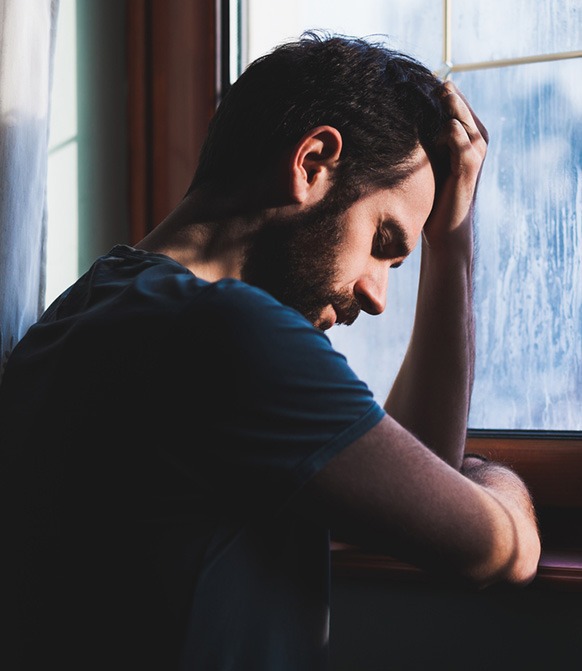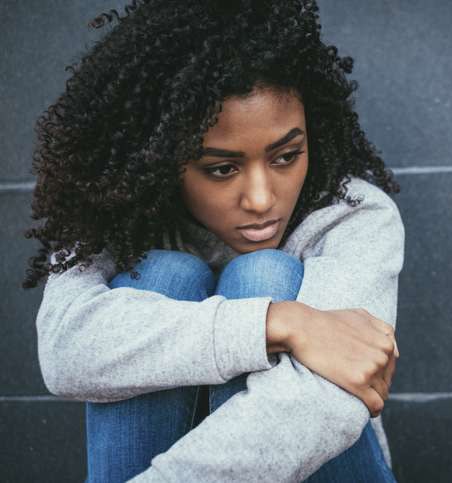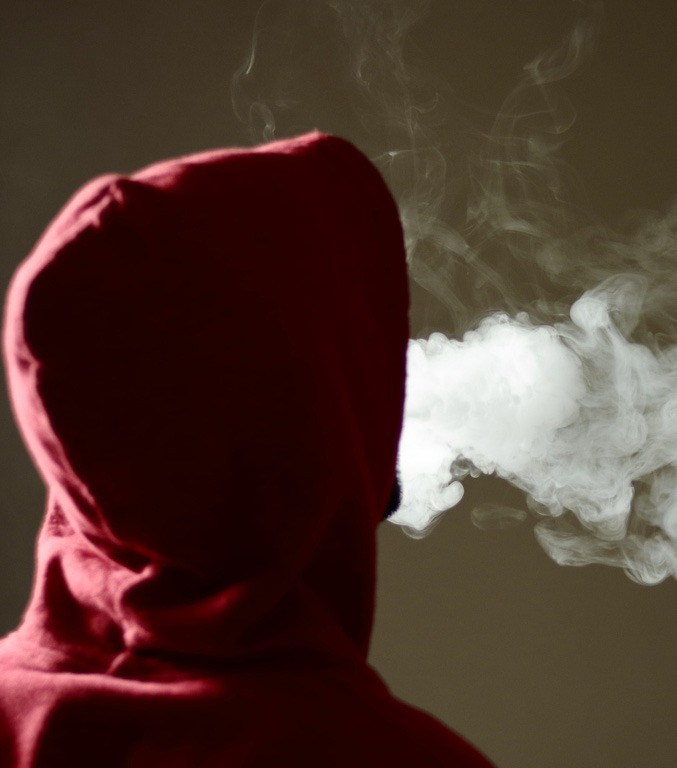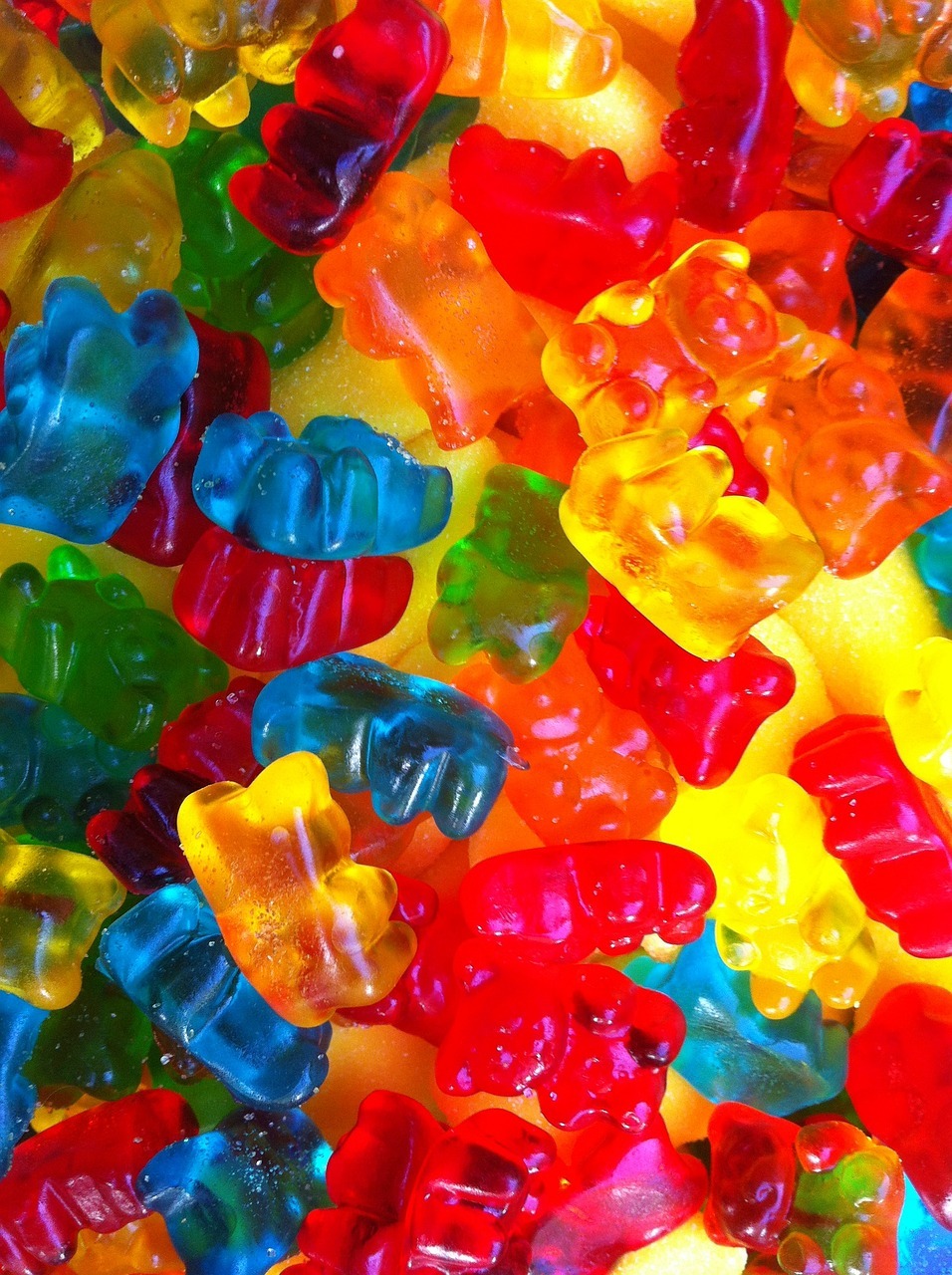Marijuana (THC) Weed Rehab Treatment in San Diego
Marijuana addiction can cause severe disruption in your everyday life. Thankfully, there is help available at Pacific Bay Recovery’s marijuana rehab in San Diego, which has the evidence-based tools and experience to help anyone overcome marijuana addiction.

Understanding Marijuana Addiction
Over 15 million adults in the United States live with a marijuana use disorder each year, according to national surveys conducted by the Substance Abuse and Mental Health Services Administration. This accounts for nearly 6% of the U.S. population, making marijuana the most misused substance in the country aside from alcohol.
While many people fall prey to the belief that marijuana is not addictive, decades of scientific evidence have pointed to the contrary. Marijuana use disorder shares the same characteristics as other substance use disorders, including:
- A loss of interest in hobbies or activities that they used to value
- Invasive drug cravings
- Marijuana use interfering with school, work, or home responsibilities
- Multiple failed attempts to cut down or stop using marijuana on your own
- Worsening physical or mental health as a result of marijuana use
- Continued marijuana use despite harmful consequences
- Using marijuana when it is dangerous to do so, such as while driving
- Physical withdrawal symptoms when marijuana use stops
- Increasing tolerance, meaning more marijuana needs to be used to achieve the desired effect
These criteria are pulled directly from the American Psychiatric Association’s Diagnostic and Statistical Manual of Mental Disorders (DSM). The DSM is the primary resource clinicians use to accurately diagnose mental illnesses.
Marijuana use disorder has grown substantially in the last several years. This increase is likely due to the legalization of recreational or medicinal marijuana in several states. Additionally, higher potency marijuana strains and concentrates that deliver more THC — the psychoactive ingredient contained in marijuana — are available.
Are you or one of your loved ones struggling with marijuana addiction? If so, reach out to Pacific Bay Recovery by calling 619-350-8220 to start getting the help you need today.

Common Forms of Marijuana
As the legality of marijuana has evolved over the years, many manufacturers and suppliers have diversified their products and started carrying the drug in multiple forms. This is especially true in states that have legalized recreational use, such as California.
However, some forms can put people at higher risk of substance misuse and addiction. And while the legality of marijuana may make it seem less harmful, it has also led to higher potency, increased availability, and sudden growth in marijuana use disorders in several states.
Call our team today at 619-350-8220 for a free, no-obligation consultation with one of our addiction experts.
Smoking
Marijuana that’s used for smoking primarily consists of the cannabis flower itself, but it can also include THC distillates that greatly amplify the potency and effect of the psychoactive drugs contained in the substance.
Marijuana can be smoked with several different forms of paraphernalia, including:
- Pipes
- Water pipes — also known as bongs or bubblers
- Rolling papers
- Cigars, typically with the tobacco spilled out
- Grinders
When marijuana was still illegal, smoked marijuana typically had much lower concentrations of THC. Today, California dispensaries are selling carefully cultivated plants with exponentially more THC than was available just a few decades ago, making marijuana a much more potent and potentially addictive drug than ever before.

And then there’s the relatively new invention and widespread availability of THC distillates. Often called “dabs,” these products are sold in dispensaries and contain massive amounts of THC that are meant to be consumed all at once. For reference, it takes about 16 grams of marijuana flower to make just one gram of THC distillate.
This high concentration of psychoactive chemicals makes THC distillates much more addictive than other forms of marijuana, and it also can lead to much more severe substance use disorders. People who use THC distillates often experience significantly greater withdrawal symptoms when they suddenly stop, and they often need the help of treatment professionals to recover.
Thankfully, there’s help. Pacific Bay Recovery offers medical detox and targeted therapies to help people recover from a marijuana use disorder and to help them stay sober for years to come.

Vaping
Vaping marijuana has quickly grown in popularity in recent years. Like electronic cigarettes, vaping marijuana uses small electronic devices and flavored cartridges to deliver the active ingredient of THC. These devices are small, portable, produce less of a smell than smoked marijuana, and they can deliver massive amounts of THC in just a few puffs.
Many people consider vaping marijuana to be safer than other methods. And while it is true that vaping marijuana may cause fewer respiratory issues than smoked marijuana, the convenience and high potency of these devices can quickly lead to a marijuana use disorder.
These products are frequently sold at California dispensaries, often with added flavorings such as strawberry, watermelon, or candy apple. But they are also sold illicitly, often with dangerous contaminants such as Vitamin E acetate, which can cause catastrophic damage to the respiratory system and has even resulted in several deaths.
The team at Pacific Bay Recovery can help people to overcome the challenges of vaping marijuana.
Edibles
Long before vapes were invented, people were cooking with marijuana and creating edible, cannabis-infused concoctions. Today, they’re still a popular form of marijuana — the only difference is that they’re legal now, and many California dispensaries offer them.
Marijuana edibles come in several different forms, including:
- Cookies
- Brownies
- Candies
- Gummies
- Chocolates
- Drinks
Unlike vaped or smoked marijuana, there’s no risk to the lungs when consumed appropriately. Furthermore, many users prefer edibles because they can enjoy a sweet snack while also experiencing the high.
However, it can take one to three hours to feel the effects of marijuana edibles, whereas the high comes much quicker when smoked. This makes it more difficult for a marijuana user to accurately assess how much marijuana should be used to achieve the desired effect.

This results in a common problem with edibles: People will eat them, not feel an effect within an hour or so, and so they eat more in order to feel the effects. This can quickly lead to taking too much, causing people to experience an extremely intense high that lasts for several hours.
The ease of taking such large quantities of THC is the biggest danger with marijuana edibles. A high dose of any addictive chemical can quickly lead to the development of a substance use disorder, leading people to use again and again, just to feel normal.
Marijuana edibles come in several different strengths and potencies. A single gummy can contain almost no THC — or it can contain a mega-dose that’s far outside what a normal user would take to feel an effect. Worse still, the labels on these products are often wildly inaccurate, leading people to think they are taking a small dose but actually taking much more THC than they anticipated.
Due to the long-lasting effects of marijuana edibles and the potential of ingesting such large amounts of THC, many people addicted to marijuana will experience significant withdrawal symptoms and cravings when they suddenly stop. These symptoms can be treated at an evidence-based marijuana treatment center, helping people overcome their challenges and achieve recovery.
Our team is standing by to answer your questions, help you find the right level of treatment, and support you in every step of your recovery journey.
To get started with marijuana treatment, call 619-350-8220 to speak to one of the admissions professionals at Pacific Bay Recovery.

How a Marijuana Drug Rehab in San Diego Can Help
Marijuana addiction treatment in San Diego combines several effective protocols to help people stop using marijuana, learn strategies to resist future relapses, and build stronger and healthier lives for themselves in recovery.
At Pacific Bay Recovery, our San Diego marijuana drug rehab centers offer several levels of care, a multi-modal approach to treatment, and compassionate support from trained addiction professionals.
- Communication skills
- Education on the science of addiction
- Coping skills training
- Relapse prevention training
- Support with improving family relationships
- Guidance on setting goals for life after treatment
We offer clients a blend of experiential and traditional therapies designed to help facilitate the changes that lead to healing from meth addiction.

Marijuana Detox in San Diego
A marijuana (THC) detox center is typically the first step for people who need help in the journey toward marijuana recovery. When people with a marijuana use disorder cut down or stop using marijuana altogether, they can experience debilitating physical and mental withdrawal symptoms that often result in a return to active substance use.
Marijuana withdrawal symptoms vary between individuals due to age, overall health status, quantity of marijuana used, and frequency of marijuana use. Common withdrawal symptoms that people experience include:
- Stomach cramps or pain
- Anxiety
- Irritability, anger, or aggression
- Depressed mood
- Loss of appetite
- Sleep difficulties
At our marijuana detox program in San Diego, these symptoms can be dramatically relieved through several medical and behavioral interventions. Our THC detox in San Diego typically follows a three-stage process, including:
1. Assessment
The first step at our San Diego marijuana detox is a detailed and thorough assessment and diagnosis process. This helps our clinicians identify your key challenges, understand which treatments would best serve you during your recovery, and develop a plan for the entire treatment process.
2. Stabilization
The stabilization phase of detox involves treating the physical and mental symptoms of withdrawal, typically using evidence-based supportive medications and behavioral support. This takes up most of the time in detox and helps people overcome distracting symptoms before continuing with THC abuse therapy.
3. Transfer
The last component of a detox program is transferring care to a marijuana drug rehab in San Diego. While detox is a vital first step, it must be followed by evidence-based marijuana abuse treatment in San Diego to produce lasting results.
Starting a detox program is as simple as calling Pacific Bay Recovery at 619-350-8220 to get a free consultation.

Inpatient San Diego Marijuana Treatment
Our inpatient THC rehabilitation center in San Diego is the next step for most people. At an inpatient facility, our clients engage in evidence-based therapies with decades of research proving their effectiveness in helping people overcome substance use. They also have access to multiple adjunctive therapies.
Examples of these treatments include:
- Medication-assisted treatment
- Individual therapy
- Group therapy
- Motivational interviewing
- Cognitive-behavioral therapy
- Relapse prevention programs
- Family therapy
- Dialectical behavior therapy
- Mindfulness therapy
- Outdoor activities
During your stay at an inpatient facility, you will live on-site at our marijuana rehab center in San Diego while receiving these services. This offers you 24/7 access to treatment professionals and support staff and ensures you have all the time you need to engage fully with your treatment plan.
Social support plays a large role in our San Diego marijuana rehab centers as well; clients share their space and time with other people working toward a common goal. This support can be vital to the recovery process and can help you forge long-lasting connections.
Outpatient Treatment
Finally, outpatient treatment offers a less time-intensive option for people seeking evidence-based care for marijuana use disorders. Our outpatient programs offer the same styles of therapy and treatment as our inpatient facility, but clients continue living at home or in supportive recovery housing while they receive care.
This makes outpatient treatment ideal for someone stepping down from inpatient treatment who still needs long-lasting support. It also works as a first-line treatment option for those with milder substance use problems who still need professional support to achieve recovery.
You can get more information about our extensive inpatient and outpatient treatment options by calling 619-350-8220 and speaking to one of our addiction experts.

Start Treatment at Pacific Bay Recovery
At Pacific Bay Recovery, we understand how difficult overcoming a marijuana addiction can be. But with evidence-based treatment, compassionate support, and a team of mental health professionals, anyone can break free from substance use disorders.
Contact our team today by calling 866-862-2960 or fill out our confidential online contact form for a free, no-obligation consultation about our program. You can recover — and Pacific Bay Recovery can help.

